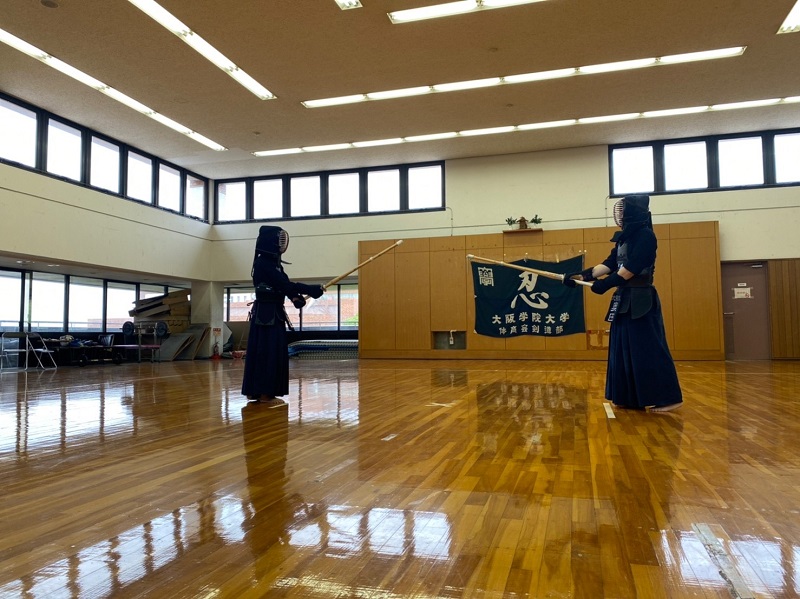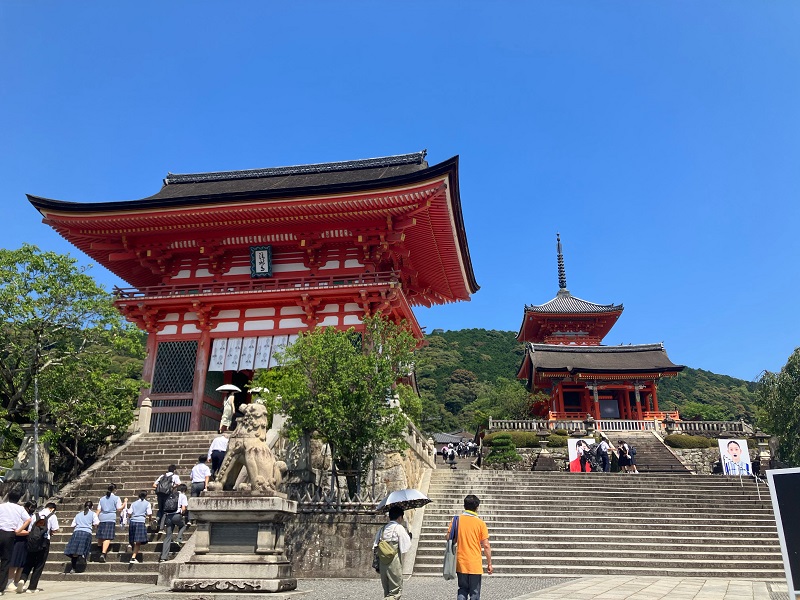Written by Josh Gill, (Rice University), Student Correspondent for CET Japan, Summer 2022
There is a two word phrase known to every language learner of the Japanese language. That phrase is “Nihongo Jouzu” (kanji: 日本語上手), which literally translates to “Japanese very good”. At first glance, this phrase seems like a great indicator that you are making good progress in your Japanese studies, however, this literal interpretation of the phrase can be misleading.

Our class was able to witness a Kendo practice match.
Since Japan is a tourist hotspot, Japanese people have grown accustomed to seeing foreigners, unable to speak or understand Japanese, struggle their way through Japan. The omnipresence of these tourists, coupled with the fact that Japanese people are naturally inclined to an abundance of respectfulness, make this “Nihongo Jouzu” phrase a popular choice among native Japanese speakers.

Celebrated a 3-day weekend by going to Universal Studios in Japan.
While at face value, this phrase seems to indicate that a native Japanese speaker is
acknowledging that your Japanese is good, the true meaning of this phrase includes a slight nuance. To understand this nuance, we can observe the situations in which a native Japanese speaker may use this phrase. Within the first week of my arrival in Japan, I was talking with the owner of a local shop and, as I struggled to get out the most basic of greetings and introductory remarks, was hit with the “Nihongo Jouzu.” In this situation, the phrase was used as encouragement, with the meaning of “I am acknowledging that you are trying your best.” Oftentimes, “Nihongo Jouzu” is used in situations like these, with the native Japanese speaker trying to offer words of encouragement to acknowledge your efforts. It is a very kind and polite gesture, however, given its heavy usage in these contexts, the phrase can feel very discouraging, as it is your efforts being acknowledged, rather than the results of your efforts. In conversations where I have felt like I was able to clearly express my thoughts and clearly understand those of my counterpart, this phrase has seldom been used, as this phrase would disrupt the natural flow of the conversation. Thus, I want to reach the point where the usage of the phrase “Nihongo Jouzu” is unnecessary, where my comprehension, speaking, and the natural flow of the conversation would all render this phrase useless.

During the free time of our Kyoto excursion, I was able to visit Kiyomizu-dera in Kyoto.
So, am I saying that this phrase should be completely disregarded and taken as a sign that your language skills are unsatisfactory? Absolutely not. As you start your language learning journey, this phrase can offer a boost in confidence and encourage you in your conversations with native speakers. Additionally, due to the abundance of this phrase, there are times when the person telling you that you are “Nihongo Jouzu” truly means it and is impressed with your language skills. However, it is the times when you yourself know that you are struggling and are met with this phrase that are important to watch out for. Instead of gauging your progress on the remarks of others, which could come from a wide variety of places, the most important thing as you continue your language journey is to self assess the ease with which you can communicate your own thoughts and opinions and understand those of your counterparts in conversations
Interested in learning about studying abroad in Japan? Click here to learn more about CET Japan.